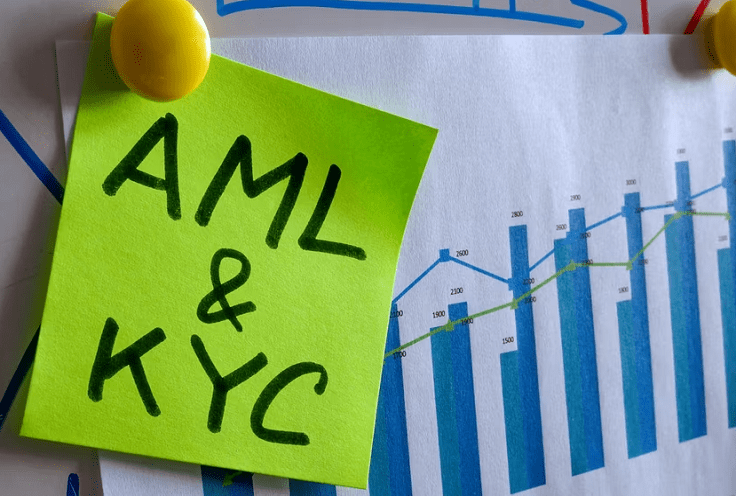The cryptocurrency ecosystem is an ocean filled with several important acronyms you can’t overlook, and it may feel overwhelming to learn them all. However, two you will hear now and then in the ecosystem are AML and KYC.
Anti-Money Laundering (AML) and Know Your Customer (KYC) are two regulatory processes that strive to prevent financial crime and promote transparency in the crypto industry.
What Is AML in Crypto?
AML stands for Anti-Money Laundering. AML is a series of procedures and regulations that prevent criminals from using cryptocurrency to cover the tracks of their proceeds from illegal activities, referred to as money laundering or washing.
It is a process where these criminals camouflage the payoffs of criminal activity to make it look like it came from a legitimate means. With this disguise, they can spend and invest money without raising eyebrows. Due to its anonymity, crypto appeals to criminals as a way to wash (launder) money.
As a measure to combat illicit activity with crypto, governments introduced regulations and processes that subject crypto exchanges and other enterprises that deal in crypto transactions to implement some steps to combat money laundering. The Financial Crimes Enforcement Network (FinCEN) in the United States, the Financial Conduct Authority (FCA) in the United Kingdom, and the Financial Intelligence Unit (FIU) in the European Union are prime examples of government agencies that oversee AML regulations.
They implement regulations to verify the identities of people who transact in crypto, monitor their activities, and report any suspicious activity that may suggest money laundering to relevant authorities.
What Is KYC in Crypto?
KYC stands for Know Your Customer, which refers to procedures for financial institutions engaged in cryptocurrencies to prevent identity theft, fraud, and other criminal activities by verifying your identity.
Crypto exchanges want to ensure that you are exactly who you claim to be and not a fraudulent criminal by collecting your personal information and government-issued identification documents. Then, they verify your identity by matching the information you provided with public records or conducting background checks.
Once your identity has been verified, you are granted certain access to their services. Additionally, proof of income or address will give you unlimited access to their services.
Top crypto exchanges like Binance, Coinbase, and Kraken carry out this process when signing up new customers. As a matter of fact, a crypto exchange without KYC should raise red flags about its legitimacy. Something worthy of note is that KYC regulations differ by country and region. Some regions may be more or less strict with KYC.
What Are the Similarities and Differences Between AML and KYC?
At the baseline, AML and KYC seek to prevent illegal activities in the crypto world. But while AML concentrates on eliminating money laundering specifically, KYC focuses on preventing fraud and other illegal activities. Both work arm in arm to ensure that cryptocurrency is used legitimately.
To help you understand this better, imagine AML and KYC as a team of detectives working hard to catch the bad guys of the cryptocurrency world. AML is the field detective on a mission looking for money launderers. In contrast, our office-seated KYC detective does the paperwork of checking IDs to ensure no one is using fake identities to perpetrate nefarious activities. Regardless of where they get to perform their duties, they are a powerful team that ensures the crypto world is safe.
One main difference we must not miss to highlight is their implementation. AML regulations are usually enforced by government agencies, like the Financial Action Task Force (FATF), at the global level. On the other hand, it’s the duty of financial institutions (e.g., cryptocurrency exchanges or banks) to implement KYC. This forms a major part of risk management practices.
Source: What Are AML and KYC in Crypto, and How Do They Differ?.







